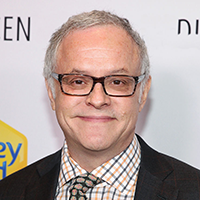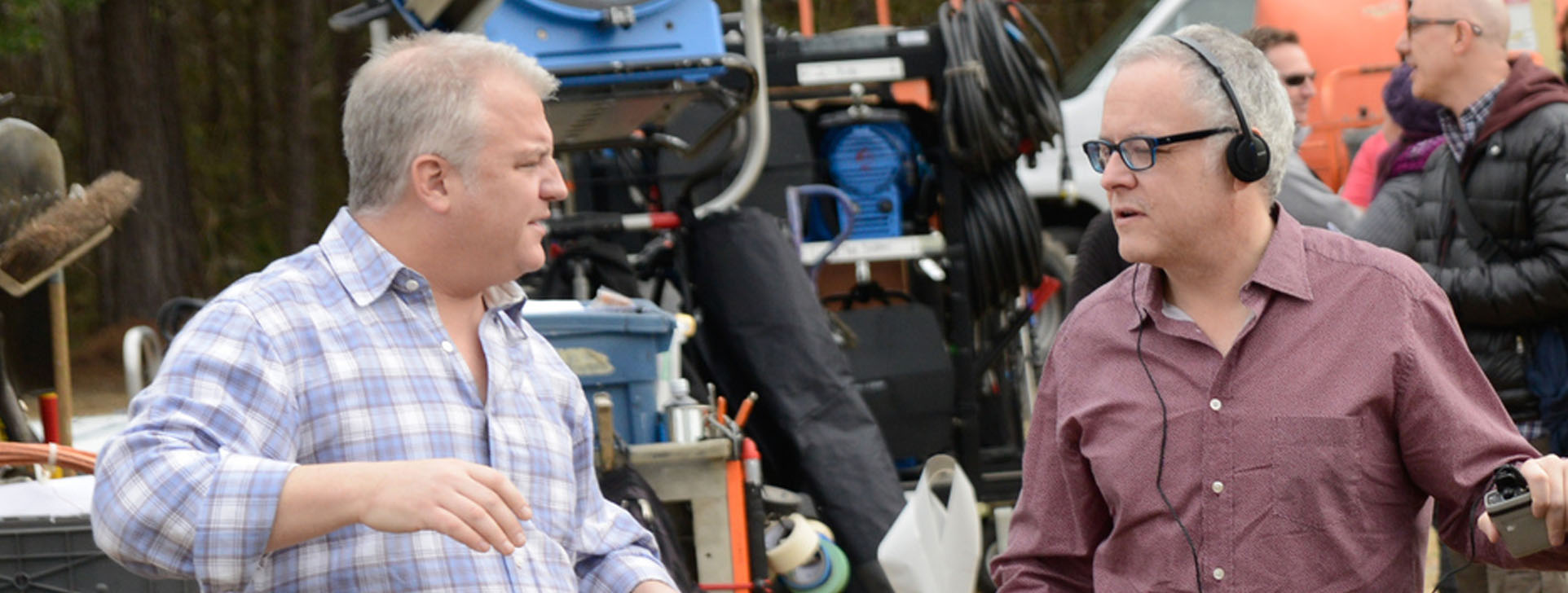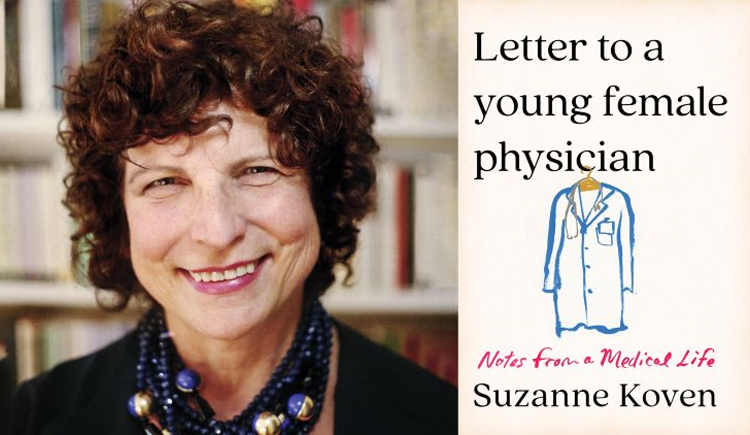Neal Baer, MD, MA, MEd
Program Co-Director, Lecturer in Global Health

Faculty Perspective
by Christina Lively
Neal Baer is the co-Director of both the Media and Medicine: How To Tell Stories That Make a Difference Certificate program and the Master of Science in Media, Medicine, and Health program at Harvard Medical School. Neal is an award-winning television writer, pediatrician, and public health advocate. I talked to Neal to ask him more about what aparked the idea for the Media and Medicine Cerificate program and more on his vision for the program.
C Lively: What first sparked the idea for the Media and Medicine Certificate program?
N Baer: Around eight or nine years ago, I met with Jeff Flier, who was the dean of Harvard Medical School (HMS), and with Ed Hundert, who was the academic dean, about the possibility of starting a program that drew on my experience as a physician and television writer-producer on shows like ER, Law and Order: Special Victims Unit, and Designated Survivor.
Before I became a full-time television writer, I attended Harvard Medical School and Harvard’s Graduate School of Arts and Sciences in sociology, where I made documentary films. That really was the turning point for me in terms of the media side. Having the opportunity to make those films led me to film school in Los Angeles at the American Film Institute, which then led me to become a writer and a producer of television shows. I started on the show China Beach, and then, later, joined ER at its very beginning. Between China Beach and ER, I attended HMS, and when I was a fourth-year medical student, I received the script for ER from John Wells, who was the showrunner. Michael Crichton had written the script when he was a medical student at Harvard in 1969, and the script lay dormant for 25 years in a trunk in Steven Spielberg's office until it was found by someone working for Steven.
NBC was very reluctant to make the show because they thought there were too many stories. ER wasn’t a traditional medical show about patients; it was more about the doctors. I read the script and said, “It's like my life, only it's outdated. We don't use glass IV bottles or chloramphenicol anymore.” The script struck me as being realistic because Michael Crichton had drawn on his own experiences as a Harvard medical student. So, I gave John Wells some thoughts for updating it, and he invited me to come work on the show for two months while I had vacation as a fourth-year medical student. I ended up staying on ER and finishing medical school over the next year on weekends and during hiatuses, and then I did an internship in pediatrics at Children's Hospital Los Angeles over seven years while working on ER and then on SVU.
I saw the profound impact that ER had on the audience, which prompted me to conduct the first study of its kind with the Kaiser Family Foundation, published in the journal Health Affairs, to look at what people learned from a television show. We studied viewers’ knowledge about human papillomavirus and cervical cancer, and on the morning after pill before and after, they watched an episode of a show with that information included in the dramatic narrative. In our research, we found that only 9% of viewers knew that HPV caused cervical cancer before seeing the episode, but after seeing the episode, 60% of viewers knew that HPV causes cervical cancer. We were shocked by the knowledge acquired from just a few minutes of television time.
That really stayed with me over the years.
After I saw the influence ER had on knowledge acquisition of health topics, I had the idea that we could change people's attitudes about health and healthcare reform and wellness through storytelling. I worked with an organization at the University of Southern California called Hollywood, Health, and Society, where our mission was to make sure that writers used accurate information in their health-related stories. I've been on their board ever since it started about 25 years ago.
So the idea for the Media, Medicine, and Health master’s degree and certificate programs came out of my experience as a physician and a storyteller on ER and on this first research study on the impact of storytelling on the audience. We started the certificate program first and it became a core curriculum course on Storytelling Methods to Promote Health and Well-Being.
C Lively: What do you enjoy about teaching in the certificate program?
N Baer: What I love most about the certificate program is seeing the participants’ projects come to life.
There are so many different types of projects. Program participants have published op-eds in local newspapers as well as in The New York Times, USA Today, STAT, The New England Journal, and JAMA. Participants have also produced visual projects like paintings, museum exhibitions, and podcasts. Some participants have produced TikTok pieces on disease-prevention stories that have tens of thousands of viewers. I know that our Media and Medicine Certificate program participants are having a profound impact on health promotion and disease prevention, and the best part of the certificate program for me is seeing these projects come to life.
I learn from the Media and Medicine Certificate program student presentations, and this shapes the way I do things in terms of creating a podcast or thinking about how to use theater to tell stories about CRISPR for my new book, The Promise and Peril of CRISPR, to be published in July 2024.
There are programs out there that focus on medical writing or narratives in medicine, but our programs (Media and Medicine Certificate program and Master of Science in Media, Medicine, and Health) go beyond writing and narrative analysis of the patient-doctor relationship. Some of our faculty are physicians who also work in the media and fine arts, though not all our faculty are physicians. Our faculty includes practitioners in the arts and humanities, including musicians, painters, writers, essayists, bloggers, filmmakers, and photographers. Any art or storytelling modality you can think of – from documentaries to VR and gaming – we cover them.
That is what is unique and captivating about our program for me.
I call the certificate program a bootcamp because we give you lots of ideas and lots of examples of practitioners doing amazing work across many artistic methods and modalities to improve health and promote access to and equity in health care. We give each participant a mentor in their project field who offers feedback, and we provide a supportive space to develop their projects to present them to their targeted audiences.
We are deeply gratified to see the results our participants’ work is having at the local, community, and national level. Our 300 past participants work in all political arenas, in clinics and hospitals as healthcare providers, as patient advocates, social workers, and with foundations.
It is gratifying to see alumni have an impact across so many areas.
C Lively: What about some highlights of the program that participants can look forward to?
N Baer: What's really wonderful is that participants come from across the world and they connect through our program. Seventeen of our Media and Medicine certificate program participants all got byline credit for a USA Today op-ed on the equitable distribution of ventilators during the beginning of the COVID pandemic. It’s amazing to me to see the support that participants give each other, though they meet online rather than in person.
A big benefit of the Media and Medicine certificate program is the opportunity to meet and work with colleagues from all over the world who come from a plethora of backgrounds and experiences in health and wellness promotion and disease prevention.
To me, that is what's really exciting. They find each other, and we give them a lot of opportunities to meet and support one another and to provide valuable support and input on each of their projects.
I also think that the mentoring part is really critical. We pair participants with a mentor who is an expert in the field that they're choosing to work in. This mentor becomes a sounding board for the participant as they work on their project
C Lively: What advice do you have for someone who's considering applying to the Media and Medicine Certificate program?
N Baer: If you have a passion project related to health promotion. disease prevention, and wellness promotion, and you love storytelling through any modality like dance, music, the arts and humanities, poetry, photography, visual arts, or the performing arts, then this program is right for you. We help you to experiment in the arena of your choice – with expert practitioners – and we encourage you to tell stories that will truly change people’s lives.
For many of our participants, that is the first step to all kinds of new ways of telling stories that make a difference.
C Lively: Thank you so much for talking to me today.
N Baer: Thank you!
This interview has been edited and condensed.
Learn more about the Media and Medicine: How to Tell Stories That Make a Difference program.


